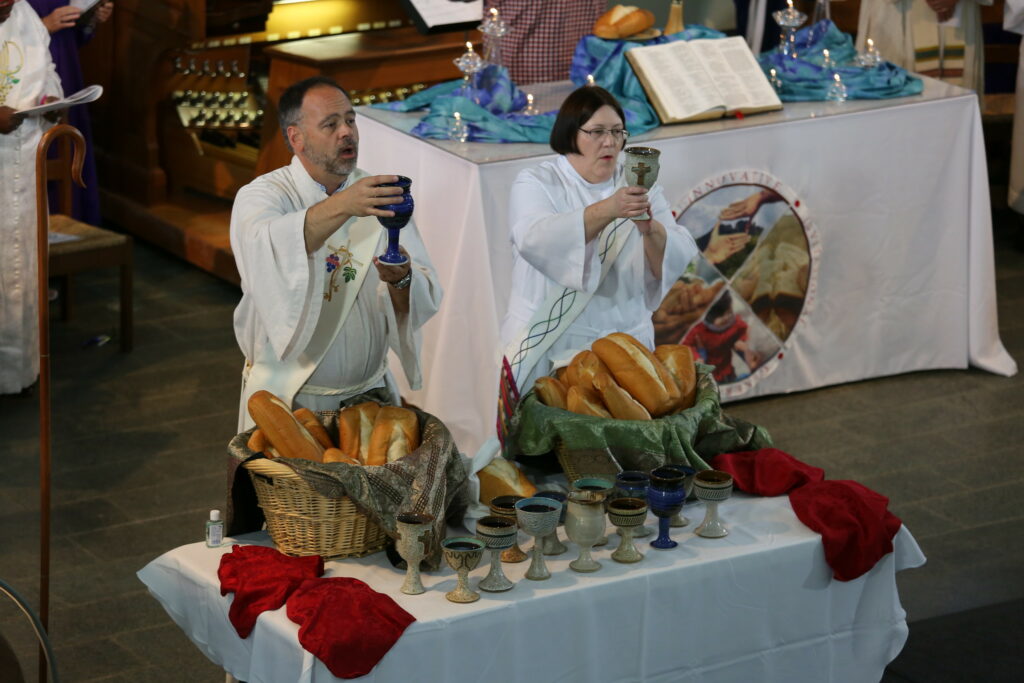By: John Langenstein & Audrey Stanton-Smith
The United Methodist Church acknowledges two orders within the ministry of the Ordained – the Order of Elders and Order of Deacons. Elders are called to a ministry of “word, sacrament, order and service,” while deacons serve in ministries of “word, service, compassion, and justice.” The two orders work in tandem to ensure the work of the Church is performed to its fullest potential.
“Elders lead the sacramental life of the local church…” said Rev. Jeff Taylor, chair of the Order of Deacons in the West Virginia Annual Conference. “… Deacons lead and extend the sacramental life beyond the walls of the church to the dispersed church.”
In this spirit, the General Conference in Charlotte voted this week to approve sacramental authority to be given to deacons as dictated by their context.
“This change recognizes that it is ordination that authorizes the sacraments,” Taylor said.
Until today’s decision, a deacon was required to ask their bishop for a dispensation to perform the sacraments.
“Today’s action removes the need to ask a bishop for permission to extend the table.” Taylor said.
Following this decision, elders will still be the primary sacramental workers of the church, but now contextual ministries will be able to better administer the sacraments to those they serve.
Deacons work in a variety of settings, and oftentimes that includes pastoral ministry.
“It’s not just that I’m filling the role an elder would do in organizing the church,” said Rev. Betsy Evans, deacon and pastor of Raleigh Shared Ministry. “I am helping it become a missional congregation.”
Evans says serving in this role, something needed to be done to make sure that the sacraments were available to the congregation.
“I just couldn’t find an elder each month to serve my congregations communion.”
While Evans did receive permission to conduct the sacraments in her churches, Thursday’s decision allows greater flexibility in how deacons are able to conduct sacramental ministries.
“For me it’s about relationships.” Evans continued, moving from the regular service of Holy Communion to baptism. Until now, a deacon could assist in preparing someone for baptism, but not perform the baptism themselves. “When you baptize someone, it’s not just a one-time relationship.” Now there is hope for a more holistic integration of diaconal and sacramental ministries.
Rev. Anna Troy, church and community worker for the Greater Clarksburg Cooperative Parish and director of Open Heart Ministries kept her response to the decision succinct.
“It’s exciting! It is a joy to be seen and affirmed in our ministry.”
Troy, in addition to serving as the director of Open Heart Ministries, is an associate pastor at First United Methodist Church in Clarksburg, and frequently aids in presiding over Holy Communion.

For deacons and elders, the decision of the General Conference will allow for greater cooperation between the two orders. As the church continues to reach out in mission and ministry to all the world, this is one more way to make the means of grace available to all people.